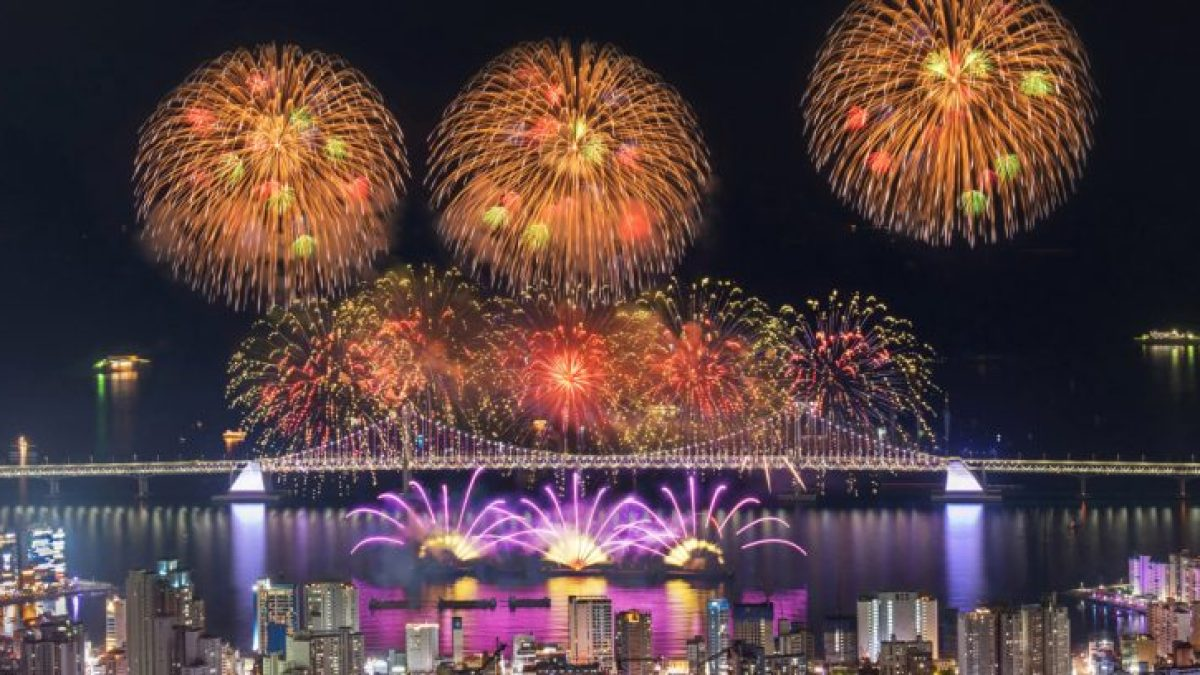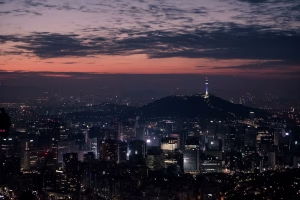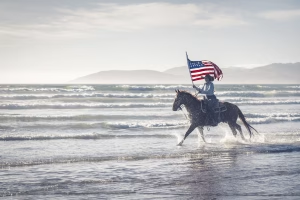From the enchanting lanterns of the Jinju Namgang Yudeung Festival to the electrifying atmosphere of music festivals like Ultra Korea, there’s a celebration for everyone.
As you explore the best festivals in South Korea, immerse yourself in the warmth of its people, indulge in delicious street food, and witness the captivating interplay of age-old rituals and contemporary arts.
Whether you’re eager to discover traditional customs or dive into the dynamic arts scene, this guide will illuminate your path through South Korea’s rich cultural tapestry.
- 1. Jeju Fire Festival
- 2. Jinju Lantern Festival
- 3. Seongsan Sunrise Festival
- 4. Hansik (Cold Food Festival)
- 5. Seollal (Lunar New Year)
- 6. Dano
- 7. Hwacheon Sancheoneo Ice Festival
- 8. Boryeong Mud Festival
- 9. Gwangju World Culture Kimchi Festival
- Music Festivals
- 1. Ultra Korea
- 2. Busan One Asia Festival
- Regional Festivals to Explore
- Tips for Attending Korean Festivals
- Why Choose One Vasco?
- FAQs
1. Jeju Fire Festival

The Jeju Fire Festival is a spectacular display of ancient rituals and modern festivities held annually on Jeju Island.
-
Dates: Usually held in March (exact dates vary each year)
-
Location: Saebyeol Oreum, Jeju Island
-
Key Highlights: The highlight is the torchlight procession, where thousands of people carry burning torches over the island’s grassy fields, symbolizing the burning of old grass to prepare for the new farming season.
2. Jinju Lantern Festival

The Jinju Lantern Festival, also known as the Jinju Namgang Yudeung Festival, is a mesmerizing event that honors the bravery of those who defended the city during the Japanese invasion of 1592.
-
Key Details:
-
Date & Time: October 1 – October 15, 2025
-
Location: Nam River, Jinju, South Korea
-
Highlights: Lantern-making workshops, cultural performances, traditional food, lantern-lit river views
-
Specialties: Rich historical significance, stunning visual displays of lanterns floating on the water
-
Pro Tip: Arrive early to secure a good viewing spot along the riverbank.
-
3. Seongsan Sunrise Festival
Every year, people gather at Seongsan Ilchulbong, a UNESCO World Heritage Site on Jeju Island, to witness the first sunrise of the new year.
-
Key Details:
-
Location: Seongsan Ilchulbong, Jeju Island, South Korea
-
Date & Time: December 31 – January 1 (annually)
-
Highlights: Fireworks display, sunrise viewing, traditional music and dance performances
-
Specialties: Celebrates new beginnings, set against the stunning volcanic crater landscape
-
Pro Tip: Dress warmly and arrive early to get a prime spot for sunrise.
-
4. Hansik (Cold Food Festival)
Hansik is a traditional Korean festival observed in early April, where people honor ancestors by preparing and eating only cold food. The festival is deeply rooted in history and features archery competitions and ancestral rites.
-
Key Details:
-
Location: Nationwide, South Korea
-
Date & Time: April 5 – 6, 2025
-
Highlights: Ancestral rituals, traditional cold dishes, archery contests
-
Specialties: Based on the legend of Jie Zhitui, emphasizes respect for ancestors
-
Pro Tip: Try different variations of cold dishes like ssam (lettuce wraps) and yakbap (sweet rice).
-
5. Seollal (Lunar New Year)

Seollal is Korea’s most significant holiday, marked by family reunions, ancestral rites, and traditional games.
-
Key Details:
-
Location: Nationwide, South Korea
-
Date & Time: Varies based on the lunar calendar (January or February)
-
Highlights: Sebae (bowing ritual), traditional games, family feasts
-
Specialties: Eating tteokguk is believed to add a year to one’s age
-
Pro Tip: Wear a hanbok and participate in folk games like yutnori for a full cultural experience.
-
6. Dano
Dano celebrated on the 5th day of the 5th lunar month, is a traditional festival that welcomes the summer and is known for its focus on health, beauty, and nature.
-
Key Details:
-
Location: Nationwide, South Korea
-
Date & Time: June 2, 2025 (5th day of the 5th lunar month)
-
Highlights: Hair washing in iris-infused water, swinging competitions, wrestling contests
-
Specialties: Believed to bring good health and ward off evil spirits
-
Pro Tip: Participate in Dano folk games and traditional herbal baths for an authentic experience.
-
7. Hwacheon Sancheoneo Ice Festival

One of Korea’s most exciting winter events, the Hwacheon Sancheoneo Ice Festival transforms a frozen river into a playground for ice fishing, sledding, and bare-handed trout catching.
-
Key Details:
-
Location: Hwacheon, Gangwon Province, South Korea
-
Date & Time: January (exact dates vary)
-
Highlights: Ice fishing, sledding, bare-handed fishing challenges
-
Specialties: A rare opportunity to fish in a frozen river and eat fresh-caught trout
-
Pro Tip: Dress warmly and reserve fishing spots in advance to avoid long wait times.
-
8. Boryeong Mud Festival
Held on Daecheon Beach, the Boryeong Mud Festival is a lively summer event where visitors enjoy mud wrestling, mud sliding, and various fun-filled activities centered around the region’s famous mineral-rich mud.
-
Key Details:
-
Location: Daecheon Beach, Boryeong, South Korea
-
Date & Time: July (exact dates vary)
-
Highlights: Mud wrestling, mud slides, mud massages, music performances
-
Specialties: Mud is believed to have skin-rejuvenating benefits
-
Pro Tip: Wear old clothes and be prepared to get messy!
-
9. Gwangju World Culture Kimchi Festival

A paradise for kimchi lovers, this festival celebrates Korea’s most iconic dish with workshops, tastings, and exhibitions on the diverse varieties of kimchi.
-
Key Details:
-
Location: Gwangju, South Korea
-
Date & Time: October (exact dates vary)
-
Highlights: Kimchi-making classes, cooking demonstrations, cultural exhibitions
-
Specialties: Learn to make and taste various regional styles of kimchi
-
Pro Tip: Join a hands-on kimchi workshop to take home a batch of your own fermented creations.
-
Music Festivals
1. Ultra Korea
Ultra Korea is one of Asia’s biggest electronic dance music (EDM) festivals, attracting world-class DJs and thousands of electronic music fans every summer.
-
Key Details:
-
Location: Seoul, South Korea
-
Date & Time: June 2025 (exact dates TBA)
-
Highlights: High-energy performances from top EDM artists, immersive stage productions
-
Specialties: A global gathering of electronic music lovers, featuring spectacular light shows
-
Pro Tip: Secure early-bird tickets for the best prices and VIP access.
-
2. Busan One Asia Festival

A grand celebration of Asian pop culture, the Busan One Asia Festival showcases top K-pop performances alongside cultural exhibits, food stalls, and stunning autumn scenery.
-
Key Details:
-
Location: Busan, South Korea
-
Date & Time: October 2025 (exact dates TBA)
-
Highlights: K-pop concerts, fan meet-and-greets, cultural exhibitions
-
Specialties: Features some of the biggest names in the K-pop industry
-
Pro Tip: Plan your trip early as hotels in Busan fill up quickly during the festival.
-
Regional Festivals to Explore
While the major festivals draw the biggest crowds, South Korea’s regional festivals offer a more intimate and authentic experience. These lesser-known celebrations showcase the unique traditions and flavors of each region.
Traditional Festivals by Region
-
Jeju Island: In addition to the Jeju Fire Festival and Seongsan Sunrise Festival, Jeju Island hosts the Jeongwol Daeboreum Fire Festival in February, where villagers pray for a good harvest and burn straw to ward off evil spirits.
-
Busan: The Busan Sea Festival in August features beach activities, water sports competitions, and a spectacular fireworks display over Gwangalli Beach.
-
Seoul: The Seoul Lantern Festival in November transforms the Cheonggyecheon Stream into a magical display of lanterns, each telling a story of Seoul’s history and culture.
Food Festivals
-
Seoul Kimchi Festival: Held in November, the Seoul Kimchi Festival celebrates the beloved fermented dish with kimchi-making contests, tastings, and cooking classes.
-
Jeonju Bibimbap Festival: Every October, the city of Jeonju, known as the birthplace of bibimbap, hosts a festival dedicated to this colorful rice dish. Visitors can try various types of bibimbap and learn about its history and cultural significance.
Art and Cultural Festivals
-
Busan International Film Festival: Asia’s largest film festival, held every October, showcases the best of Korean and international cinema. The festival features film screenings, red-carpet events, and industry forums.
-
Jarasum International Jazz Festival: Held on Jara Island in Gyeonggi Province every October, this festival brings together jazz musicians from around the world for a weekend of smooth tunes and autumn foliage.
Tips for Attending Korean Festivals
To make the most of your festival experience in South Korea, keep these tips in mind:
-
Pre-book tickets for festivals requiring entry, such as the Boryeong Mud Festival or Jinju Lantern Festival.
-
Wear traditional attire like hanbok if the festival encourages it for a more immersive experience, such as during Chuseok or Seollal.
-
Comfortable footwear is essential for events requiring walking or standing, such as the Seongsan Sunrise Festival on Jeju Island.
-
Sample traditional festival dishes like tteok (rice cakes) during Seollal, bibimbap at the Jeonju Bibimbap Festival, or cold dishes during Hansik.
-
Popular festivals can lead to crowded roads, so opt for buses or subways to reach locations like Seoul’s Buddha’s Birthday celebrations or Gwangju’s cultural festivals.
-
Learn simple Korean phrases like “Annyeonghaseyo” (Hello) and “Gamsahamnida” (Thank you) to connect better with locals.
Why Choose One Vasco?
OneVasco makes visa applications effortless. Our expert team manages the entire process, allowing you to focus on your journey.
Enjoy stress-free travel with fast visa approvals.
-
Expert and Personalized Support
-
Efficient and Hassle-Free Process
-
Real-Time Tracking and Updates
-
Transparent Communication
-
Trusted by Millions
FAQs
1. What are the major traditional festivals celebrated in Korea?
The major traditional festivals of South Korea include Seollal (Lunar New Year), Chuseok (Harvest Festival), Dano, and Hansik (Cold Food Festival). These festivals are deeply rooted in Korean history and culture and are celebrated with family gatherings.
2. When is the best time to visit Korea for festivals?
The best time to visit South Korea for festivals depends on your interests. Spring (March to May) and autumn (September to November) are popular times, with pleasant weather and many cultural festivals. Summer (June to August) is ideal for music festivals and outdoor events.
3. What activities can I expect at Korean festivals?
Korean festivals offer a wide range of activities, from traditional performances and crafts to modern music and art. Many festivals feature food stalls, cultural exhibitions, and hands-on workshops. Some festivals, like the Boryeong Mud Festival, involve unique experiences like mud wrestling and sliding.
4. What should I know about festival dates and locations?
Festival dates in South Korea often follow the lunar calendar, so the exact dates may vary from year to year. Some festivals, like Seollal and Chuseok, are national holidays, while others are regional celebrations. Festival locations range from bustling cities like Seoul and Busan to scenic spots like Jeju Island and Jara Island.
5. Name the tribal festivals in Korea.
While South Korea does not have “tribal” festivals in the traditional sense, many festivals have roots in ancient shamanic rituals and agricultural traditions. For example, the Jeju Fire Festival and Dano both have origins in tribal practices and beliefs.
6. Can foreigners participate in Korean festivals?
Absolutely! Festivals in South Korea welcome visitors from around the world. Many festivals offer English-language programs and services, and locals are often eager to share their culture with foreigners.





















